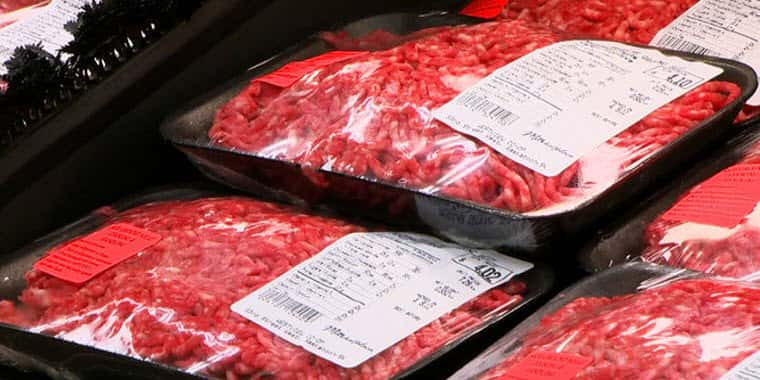Last week in the Montana legislature the House Ag committee heard testimony on the country-of-origin placarding act, House Bill 324. The bill would require grocers to display placards at meat counters designating beef and pork into two categories. The first category would read “born, raised and processed in the U.S.” The second category would read simply “imported/origin unlabeled.”
This isn’t the first time the Montana legislature has debated COOL and it probably won’t be the last.
In testimony supporting the bill, Cole Mannix of the Grow Montana Policy Coalition said the bill offers much needed transparency. “This is something that customers want,” Mannix said. “Ranchers are willing and already able to provide it and packers are quite able to provide, but they would rather not. This is simply about transparency.”
Mannix went on to say, “It’s true that COOL should be dealt with at the federal level. At the same time, it’s true that a Montana COOL placarding measure could get us closer to that federal action, while at the same time not conflicting with federal law.”
Montana Farmers Union President Walter Schweitzer testified that Montana producers need a fair and honest marketplace. “Montana beef and pork producers are forced to compete against imported product that is labeled with the misleading product of the USA,” Schweitzer said. “Many grocery stores sell Montana meats, but its hard to compete when the large box stores can mislead consumers into thinking they are buying U.S. beef or pork.”
Jeanie Alderson, chair of the Northern Plains Resource Council, testified that in her ranch operation where they sell grass-fed beef, “We have a hard time competing with cheap imported grass-fed beef that shows up in stores and in on-line beef subscripting offerings.” Alderson went on to say, “Montana country of origin placarding would be a start to creating an honest market for our great beef.”
On the other side of the debate, the Montana Stockgrowers Association opposed the placarding measure. Montana Stockgrowers Executive Vice President Jay Bodner said they do support country-of-origin labeling, but they have concerns about how this bill will be implemented.
“There are some concerns over the supremacy clause in the Constitution and also with the federal meat inspection act,” Bodner testified. “One of the other concerns we have is that we put all the responsibility on the retailers, but yet we haven’t talked to them. And I think they’re a partner in this. We all want to sell more Montana beef and more U.S. beef, but the folks that are on the retail end should be included in that legislation.”
Bodner also expressed concern that retailers may have to put an “imported/origin unlabeled” placard on meat that may in fact be U.S. product. Bodner said, “That’s not a great tool. We want to be able to provide incentive to sell more beef and when you have that label up on the meat counter, that’s not going to do it.”
Nicole Rolf of the Montana Farm Bureau Federation said her organization is also in favor of COOL that is compliant with World Trade Organization requirements, but passing this bill she said will not reimplement country-of-origin labeling.
“What this bill does is asks for a placard to be put on meat when it arrives at the grocery store,” Rolf explained. “The problem with that is most grocery stores receive boxed beef that comes with a USDA stamp on it. It does not provide information as to where the animal was born, raised or processed. So asking the grocery stores to do something that they cannot comply with is troubling. Most meat would then consequently probably be placarded as imported or origin unlabeled.”
Bridger Mahlum representing the Montana Chamber of Commerce said that the chamber and the Montana Retail Association are opposed to the bill. Speaking for both organizations, Mahlum said, “Retailers and businesses want to promote Montana ranchers’ superior product in the stores, no question. But that aspect of the supply chain at the retail level, often doesn’t have the information to make that educated decision that they need to, to fulfill section two of this bill.”
###
Northern Ag Network


